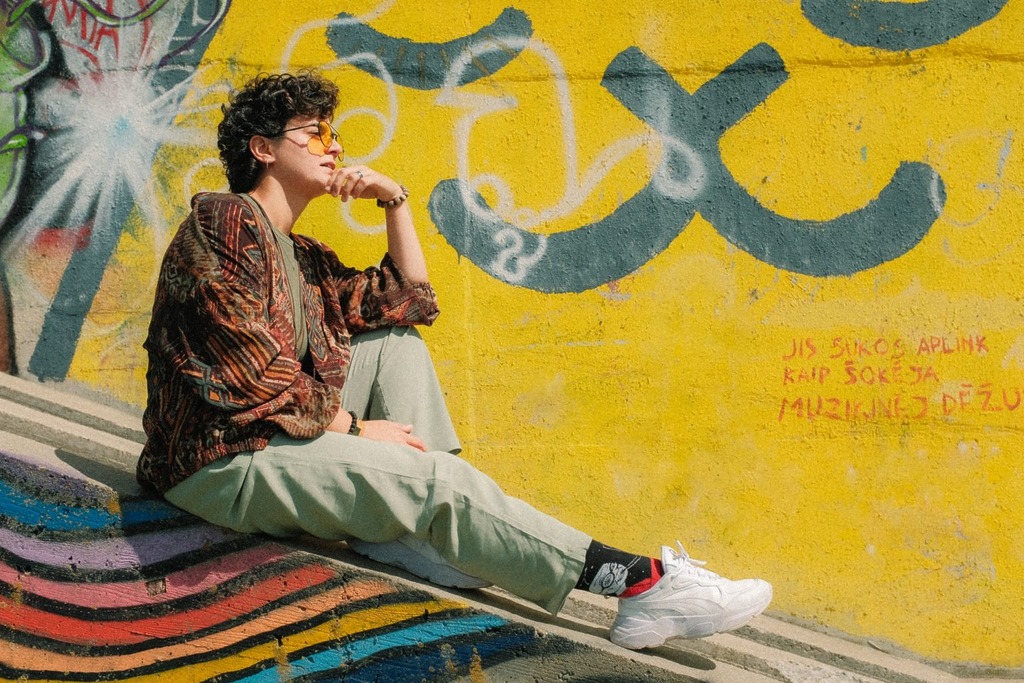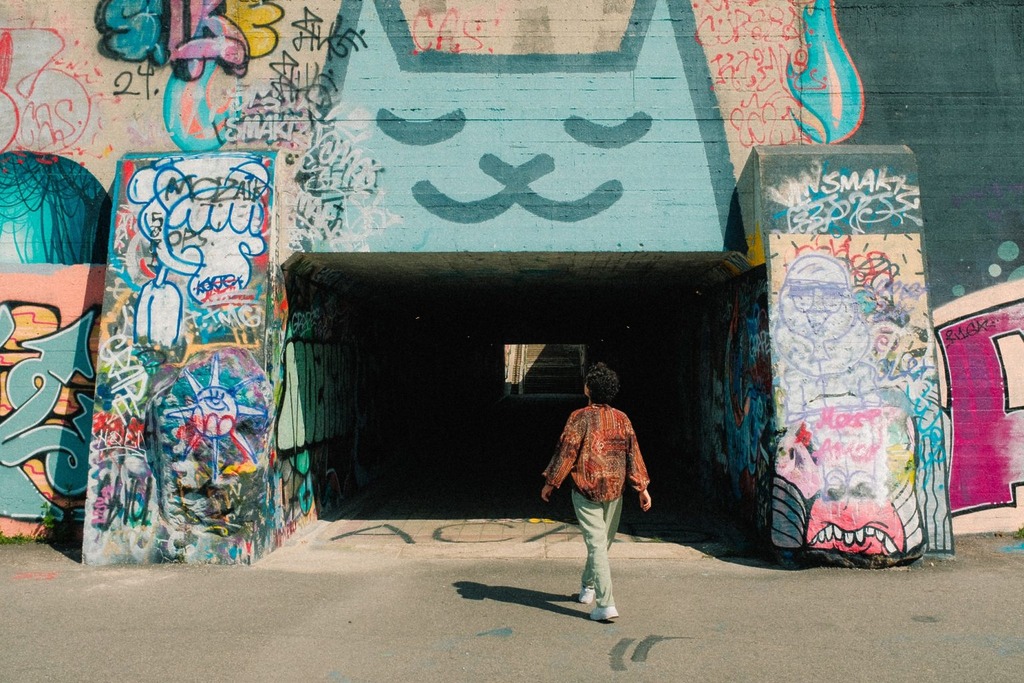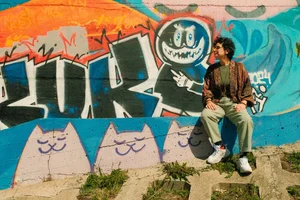At one point, a drunken man attached himself to us, and I thought that was it, my parents would make me go back home. Problems continued even after we finally reached Kaunas – at first, we ended up at the administrative building instead of the dormitory with all our luggage,” Narmin recalls.
Narmin also faced obstacles in the city, as, according to her, Kaunas was just beginning to adapt to the growing number of foreigners. “I used to order food by pointing at pictures, and I clearly remember struggling to buy Greek yogurt, I kept getting either some kind of cheese or curd, but not yogurt. Although I like being alone, a broader social circle in a new country would have definitely been helpful,” Narmin recalls.
In her first year of studies, she was reserved and focused on her classes as she needed to maintain a perfect record to keep her scholarship. Everything – except being a good student – changed after she returned from her Erasmus exchange in Sweden.
“When I returned to Lithuania from Stockholm, I decided to immediately join the Erasmus student network where I met more people and made friends. I started organizing various events, and once every semester, trivia nights. I received a lot of positive feedback about my quizzes and requests to hold them more frequently,” Narmin remembers.
From quizzes to tours in Kaunas
After her studies, Narmin not only received an offer from KTU to enroll in a tuition-free master’s programme but also expanded her quiz nights beyond the university.
“At that time, there were no English-language quiz events in Kaunas, so I took a risk without fully knowing if there would be enough interest. However, I ended up filling the Džem’pub bar to its full capacity! I started organising quizzes every week and gained sponsors who provided various prizes. Around 2017, Quiz with Narmin became the biggest event for the English-speaking community in Kaunas. It was essential to me to create a space where students and others could socialize,” Narmin shares.
Continuing to discuss the quiz, Narmin emphasises the importance of community building and intercultural exchange. “Since I knew which countries the participants were from, I often tried to include questions about their cultures in the quiz, it’s one way to delight the participants. I also didn’t forget to include questions about Azerbaijan. I wanted to introduce people to my country,” she smiles.
Narmin’s involvement in the international community of Kaunas continued to grow. Eager to learn more about the city, she began to explore it in-depth and eventually started working as a tour guide.
“People who say that Kaunas is boring and only has one street are very mistaken. As a guide, I always try to show the more interesting places and talk about unique sculptures. This includes the Yard Gallery, the Monument to Routine, or the Zen Rabbit on the underground passage of Vilnius Street, whose story always delights both me and the tourists,” Narmin notes.
Learned Lithuanian by listening to Mamontovas
The final and perhaps most essential of her activities is the SPEAK Lithuania initiative, which connects native language speakers with foreigners who have come to Lithuania.
“SPEAK was born in 2016 as a social startup with the mission to integrate refugees and migrants into society. Overall, SPEAK is more than just language learning. It’s a way to democratise language education, build community, connect people from different cultural backgrounds, and break social bubbles,” Narmin explains.
In approximately four years, over 3,000 people from more than 70 different nationalities have learned languages with SPEAK Lithuania, improving their skills in Lithuanian, Ukrainian, Persian, Arabic, Japanese, and other languages. After initially establishing the SPEAK branch in Kaunas, Narmin expanded the activities to Vilnius in 2022. Last year, she received the Lietuvos galia Award from President Gitanas Nausėda.
According to Narmin, SPEAK Lithuania also brings the community together by organising events, and their oldest friend, who led Lithuanian language courses, is around 90 years old.
Many people, after completing a language course, return to teach their native language. When a new Lithuanian language group is announced, the spots fill up in less than half an hour, so the demand is still immense. We also go on picnics and hikes together, celebrate Christmas, and even the spring equinox festival Nowruz, popular in Asian countries like Azerbaijan, Kazakhstan, Iran, and others.
Today, Narmin already considers Lithuania and Kaunas her second home. She speaks Lithuanian quite well (having learned it by listening to Mamontovas and Kernagis) and is especially pleased with the progress she sees in the country.
“Although I travel a lot, I always return here. Today Lithuania is much friendlier to foreigners than it was in 2013. Museums have English descriptions, cafés have English menus, and universities have even more integration programs. I’m even a bit envious of those coming to Lithuania now. Finally, I’m very happy that through my heartfelt efforts, I’m contributing to easier integration in Lithuania. I wish the same for others, especially new students – after all, to receive, you must also give,” says Narmin.




